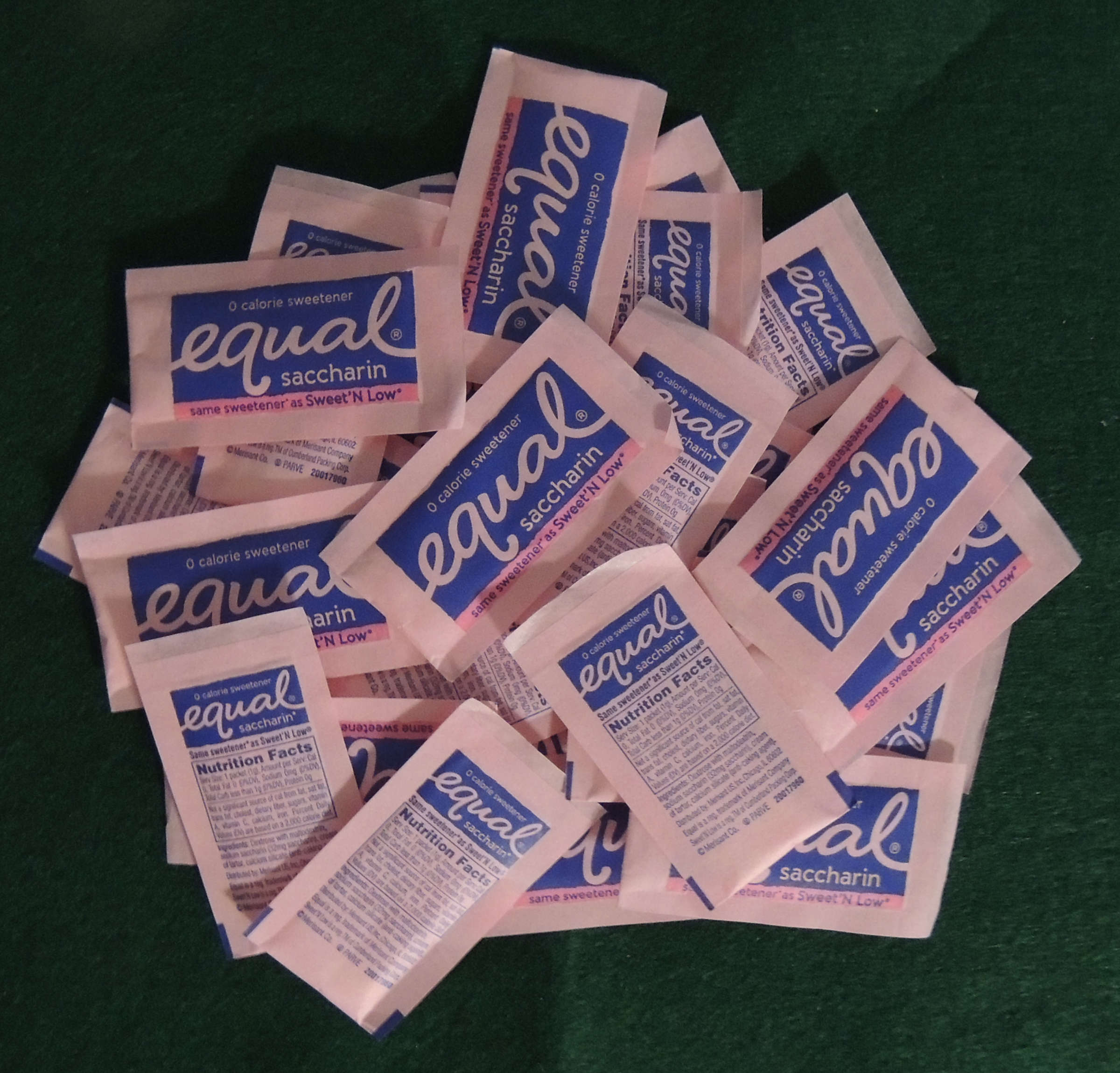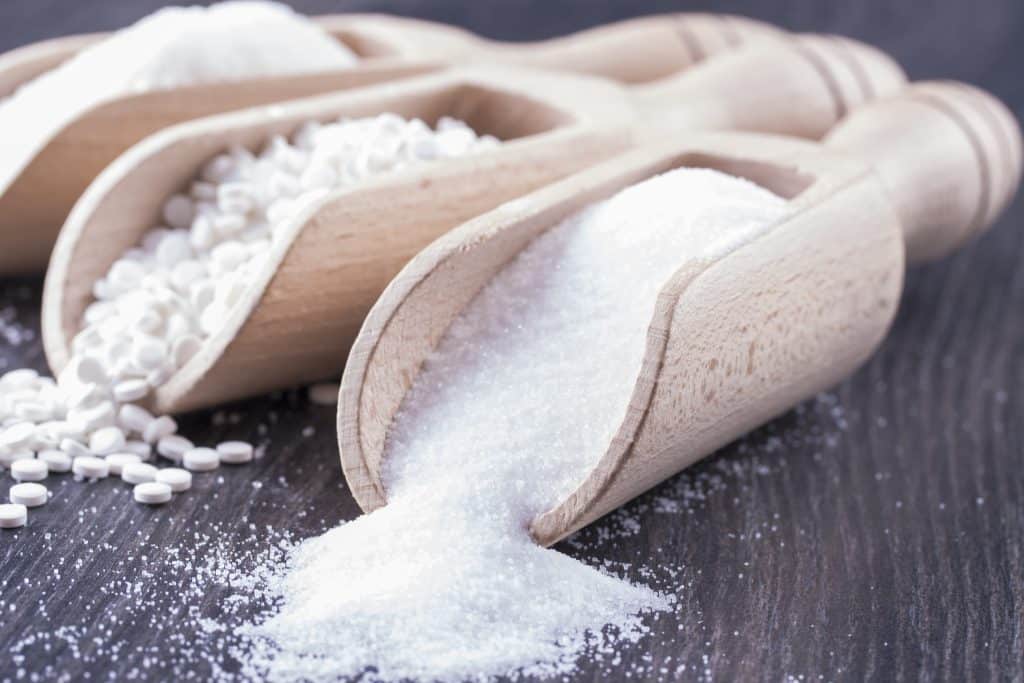
Sweetener is everywhere, and it can be confusing. We crave sweetness but want to avoid the negative effects of sugar. However, not all sugar substitutes are the same. Experts point out that some substitutes may have unexpected effects. Let’s take a closer look at sweeteners and see if they can offer new options for people.
Recent studies have frequently focused on popular sweeteners. Erythritol is currently the subject of widespread discussion. It is found in ketogenic foods, sugar-free beverages, and chewing gum. As a sugar alcohol, erythritol has been approved for use in the United States since 2001.
It is often marketed as aiding weight control or blood sugar management. However, an increasing number of studies have linked high levels of erythritol to vascular health issues. New cellular research further supports these concerns. A study examined the effects of erythritol on brain and vascular cells. The findings were presented at the 2025 American Physiological Society meeting.

Researchers at the University of Colorado Boulder conducted this experiment. They exposed human brain blood vessel cells to a solution that simulated the content of approximately 30 grams of an artificial beverage. The cells were immersed in the solution for three hours. The results of the experiment were very clear, and the researchers observed distinct changes.
Cells exposed to the solution showed significantly higher levels of oxidative stress.The reactive oxygen species (ROS) produced were nearly 100% higher than in untreated cells. ROS are free radicals that can damage cells. This result contrasts sharply with cells that were not exposed to erythritol.
Interestingly, the treated cells showed increased levels of antioxidant enzymes. This suggests that the cells were trying to fight off the extra stress. However, the researchers also observed other effects.
These cells now produce less nitrate. Nitrate is essential for blood vessel relaxation and dilation, which aids blood circulation. A reduction in nitrate may impair blood vessel function and affect blood circulation.
Experts believe that this combination increases the risk of vascular disease. Previous studies have found it to be associated with blood clots and stroke. Experts are currently exploring these cellular effects.
Dr. Thomas M. Holland explained the potential mechanisms. Erythritol may have negative effects on brain and vascular health. It interferes with cellular processes within cells, seemingly disrupting nitric oxide production, thereby affecting function. It explicitly interferes with key activation steps within cells.

This reduces their efficiency in producing this key molecule. Decreased nitric oxide (NO) levels can impair function and may lead to circulatory disorders. He pointed out that this could cause neurovascular damage over time.
Erythritol triggers a sharp increase in reactive oxygen species (ROS), which are harmful molecules that cause damage. The concern is that when ROS damage neural tissue, it can lead to cognitive decline. He added that ROS also damage multiple organ systems, as you know. This damage can trigger various disease processes. The body attempts to defend itself by enhancing its own antioxidant defense mechanisms.
However, researchers also observed that high levels of stress remain present. The experts’ conclusions are clear: everyone should take this seriously. Controlling the intake of sweeteners is key.
This challenges the perception of erythritol as a completely harmless substance. Dr. Holland made it clear that moderation is essential. This is especially important for those with existing risk factors for vascular diseases. This is a call to be vigilant about the foods we consume, even if they are simply labeled as “sugar-free.”

These substances may affect health in other ways. If protecting brain function is a priority, it is advisable to limit the use of certain substances. Health experts often recommend avoiding or significantly limiting the intake of these substances.
Aspartame is one such artificial sweetener. It has frequently been the focus of research and news reports. It is found in weight-loss beverages, drinks, and sugar-free products such as gum. Its widespread use means that many people consume large amounts of it. Scientists and doctors have been studying its potential effects on health. Research suggests that it may be associated with issues related to cognitive function.
The journal *Detrimental Effects* highlights the “harmful effects” reported in its articles. Researchers indicate that these effects are particularly pronounced in cognitive function. Findings from animal model studies and human studies are also emphasized.
The association between aspartame and issues such as learning difficulties, headaches, seizures, and migraines does indeed exist. Additionally, it has been linked to irritability, anxiety, depression, and insomnia, as pointed out. The journal “Scientific Reports” also supports these concerns.
Save calories or sugar but introduce other discomfort forms maybe. Important point: these concerns based on research, expert observations only. Highlighting potential risks these studies showed you know. Effects vary person to person dramatically sometimes they do.

An increasing number of studies indicate a notable phenomenon for all of us. Simply replacing sugar with sugar substitutes does not always equate to improved health. Some substitutes may be better, yes, and this is possible for many people.
Dutch doctors prefer natural sweeteners like honey or fruit syrup, but in moderation. While these sweeteners do raise blood sugar, they are rich in antioxidants. For zero-calorie options, he recommends a combination of stevia and monk fruit extract. Currently, this combination appears to be safer. In tests, it did not show any negative effects on stress or blood vessels.
This safety makes it stand out.Stevia originates from a South American plant and is now cultivated worldwide. Truvia and PureVia are common brand names. In the United States, stevia has a safe status. Its sweetness is approximately 200 to 400 times that of sucrose, so only a small amount is needed. Stevia may occasionally cause bloating and dizziness.
Enjoy the natural sweetness of fruits. A balanced diet contributes to overall health. Making wise choices every day is crucial.
Related posts:
sweetened drink may harm brain, blood vessel health
We analyzed hundreds of protein bars. Here are the healthiest options.
Top 6 Keto Sweeteners for a Low




